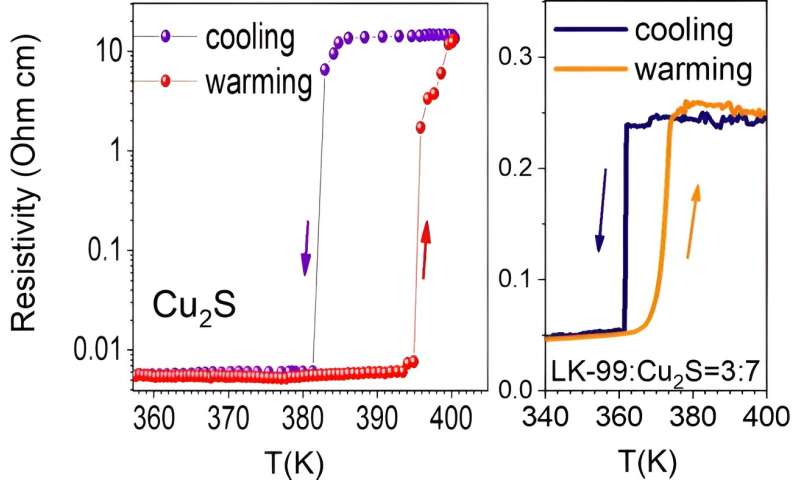Best of Last Week—LK-99 not a superconductor, tricking ChatGPT into leaking data, behaviors guided by dopamine

It was an interesting week for physics research as a team at the Austrian Academy of Sciences unveiled a new approach to the study of entanglement that they claim could significantly improve the understanding of entanglement in quantum materials. A team in South Korea had made worldwide headlines earlier this year when they claimed that the polycrystalline compound LK99 was superconductive at room temperature. Now, a small team at Beijing National Laboratory for Condensed Matter Physics and Institute of Physics has provided solid evidence that LK-99 is non-superconducting, disproving earlier claims. And officials at JT-60SA, currently the world's biggest experimental nuclear fusion reactor, announced that the facility had been officially inaugurated—housed in a hangar in Naka, Japan, the six-story machine uses a donut-shaped tokamak vessel to investigate the feasibility of using fusion as an energy source.
In technology news, a team at Google tricked ChatGPT into leaking private user data using just a few simple commands. And a small team of mechanical engineers at Universidad Tecnológica de Panamá developed a rice-husk–based insulation material, and after evaluating its thermal and mechanical properties, suggested it could be the eco-friendly insulation material of the future. A combined team of robotics engineers from the Norwegian University of Science and Technology and the Indian Institute of Technology Bombay developed a sensing paw that could be used to improve the ability of legged robots to move on different terrains. And another combined team, this one with members from the University of Washington and MIT, developed a new approach to teaching robots to carry out desired tasks that allows them to learn in a changing environment using both exploration and human feedback.
In other news, a team of medical researchers at Monash University, working with colleagues from the University of Western Australia and the University of Iowa, found evidence that high levels of "good" cholesterol may be associated with a risk of developing dementia. Also, NASA announced that after 50 years, the United States will try to land a craft on the moon on January 25—liftoff is scheduled for December 24. And finally, a team at Wake Forest University School of Medicine found evidence that human behavior is guided by fast changes in dopamine levels in the brain.
© 2023 Science X Network